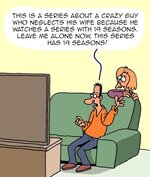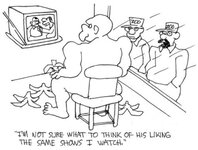Just out of curiosity, I am wondering how a Covid out break could stop you from crossing an expanse where there are probably so few people who could even get Covid that the risk seems infinitesimal? It would seem to be a place where any distance restrictions are already taken care of by the lack of human inhabitants.
Even if you weren't infected, a Nationally co-ordinated but State managed response kicked in pretty much as soon as our first COVID case was recorded, early/mid Jan 2020 I think, when our International Borders were effectively closed and travel over State Borders without a 'Returning Home Quarantine' period of 2 weeks was imposed and after that, travel out of your Home State, your Region, and your local 'bubble' area was very quickly and effectively prohibited with a few exceptions managed by a variety coming and going permits and 'travel quarantine periods' - basically because if you were unknowingly exposed or even infected and you travelled, you spread the infection and put everyone else at risk. We did have to travel into Victoria during this time (yeah, I know, going from a less infected State to a higher infected State sounds silly, and it was even worse cos I had to go for medical treatment that was only available there, but it was extremely time critical!) only to get into that State, we had to apply for and get permits to travel from both State's Authorities; then adhere to a monitored 'Quarantine at home' period for a couple of weeks beforehand; then 'Quarantine in place on Arrival' for a couple of weeks when we got there, also monitored; and then we had to do the reverse on the way back.
For those not travelling anywhere, if you did get infected/test positive at any time but didn't end up in hospital because of the severity of your infection, there was mandatory minimum 14 day home or 'in place' quarantine for anyone returning a positive infection test, and you had to have 2 or 3 (I'm not sure now which it was, but more than just 1, and they were checked!) clear negative test results before that quarantine period was lifted. The various States imposed different Region and 'bubble' radiuses depending upon how many cases of COVID there were within your State and Region, and where the confirmed COVID infections were highest, some States even restricted travel outside of your family home/group for varying lengths of time, except for a few essential activities. And for us, it worked.
The National Oz response started early; we had higher testing rates; more aggressive quarantine requirements for any travel, and even stricter requirements for those infected/tested positive, and overall, that resulted in slower and lesser transmission rates followed by a quicker return to 'normal life' for the whole Country than it did for most of the rest of the World. Again IIRC, the Capital City of Victoria, Melbourne, didn't come down quite so hard or so quickly on restricting travel and imposing quarantines as the rest of the Country, and at least some their... ermm, let's just say 'lesser educated' portion of the population, was a bit slack on adhering to or just ignored the quarantine requirements, so as a segment of the population, they paid the penalty with more people infected sooner, suffered worse, with more fatalities, and ultimately, all of Melbourne ended up suffering longer and more stringent restrictions and ongoing infections for a longer period than any of the other State Capitals and most other Regions in the Country; so when they eventually started to play catch-up (it was really only a few weeks later, but it made a biiig difference), their overall quarantine period and travel restriction time was somewhat longer than the rest of the Country, far longer than their initial delay in starting.
WA, on the other side of the side of South Oz and with even more wide open spaces than any other State, imposed their International Arrival, State Border, and travel restrictions early, and the populace really co-operated with and worked hard at limiting their travel and therefore exposure to any chance of infection very effectively, massively restricting the spread and infection rates across the population and especially across the small communities across the Nullabor that make normal land travel across there possible at all (they really didn't want any infection brought in by travellers, or the entire family/town population would be infected!) and of course, the really wide open spaces between population centres helped a lot, so they had very little overall infection and life was effectively 'back to normal' within the State of WA fairly quickly; while South Oz was just a little slower in closing our Borders and restricting travel outside of our Regions and local 'bubbles', and altho we scored a slightly higher % of the population infected early in the piece than WA, once imposed, the strict adherence to quarantine by the majority of the population had us 'back to normal' a fair bit sooner than the Eastern States & Capital Cities, Victoria & Melbourne in particular; and like WA, a significant period earlier than pretty much the rest of the World. Despite Vic's slower start and slacker adherence to the quarantine requirements, the State as a whole and even that portion of the population who'd resisted earlier basically caught on pdq once they saw how quickly the other States like WA & SA were back to normal, and overall, Australia had significantly lower case numbers and deaths per capita than almost everywhere else, albeit likely aided by our mandatory vaccination requirements somewhat too.
Still, all in all, the short term pain we went thru early on saw a long term gain; and Oz wide, we were pretty much 'back to normal' in just about all respects by early March '21, widely recognised on the International stage as being faster and with fewer infections and deaths per capita than most of the OECD Countries, including the USA.



